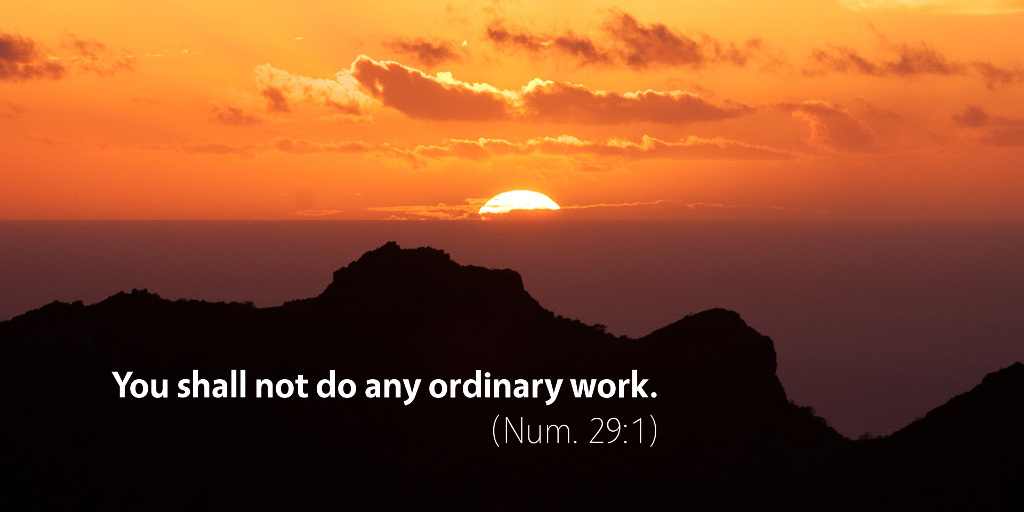Bible Readings for May 20th
Numbers 29 | Psalm 73 | Isaiah 21 | 2 Peter 2
It is difficult to overstate the significance of the calendar of worship that Yahweh gave for his people. Every year, Yahweh commanded the people of Israel to appear before him during three major sets of feasts (Ex. 23:17, 34:23; Deut. 16:16) on top of all the other sacrifices required monthly, weekly, and daily. How does all this apply to those of us living under the new covenant today?
First, the calendar of worship in the old covenant managed the time of Israel, just as the regulations about distance and boundaries managed the space of Israel. This goes all the way back to creation: just as Yahweh sanctified a holy place in the Garden of Eden, so he also sanctified time by setting apart the seventh day—the Sabbath—as a holy day of rest (Gen. 2:3).
The principle of Sabbath rest, then, formed the theological foundation on which all the other calendar events rested. As Allen Ross observes, “All the feasts were supposed to be observed as complete Sabbath rests even though they might not fall on the Sabbath.”1 So, we see in Numbers 28–29 the repetition of the command that “You shall not do any ordinary work” (Num. 28:18, 25, 26; 29:1, 7, 12, 35)—and we shouldn’t miss the fact that Yahweh uses this phrase seven times in this passage.
Second, the regulations for time in Israel served the same purpose as the regulations for space surrounding the tabernacle: to point forward to Jesus Christ. In the most explicit New Testament reference to the old covenant calendar, Paul writes this: “Therefore let no one pass judgment on you in questions of food and drink, or with regard to a festival or a new moon or a Sabbath. These are the shadow of the things to come, but the substance belongs to Christ” (Col. 2:16–17).
What substance, then, did Christ bring? The author of the book of Hebrews tells us: “So then, there remains a Sabbath rest for the people of God, for whoever has entered God’s rest has also rested from his works as God did from his” (Heb. 4:9–10). Jesus came to usher in a new creation, declaring his work finished on the sixth day (John 19:30), resting in the grave on the seventh day, and bringing in the firstfruits of a new creation through his resurrection on the eighth day (1 Cor. 15:20).
So, under the new covenant, God has stripped down all the many festivities back to only the one primary, overarching theological principle: Sabbath rest. We gather weekly on the new Sabbath during the first day of the week to celebrate the victory of Jesus Christ, looking forward to the day that Jesus Christ will come again to establish his perfect Sabbath rest forever.
Maranatha (1 Cor. 16:22). Come quickly, Lord Jesus (Rev. 22:20)!
1 Allen P. Ross, Holiness to the LORD: A Guide to the Exposition of the Book of Leviticus (Grand Rapids, MI: Baker Academic, 2002), 396–97.
Podcast: Play in new window | Download (5.1MB) | Embed
Subscribe: Apple Podcasts | RSS | More

Scripture quotations are from The Holy Bible, English Standard Version copyright © 2001 by Crossway Bibles, a division of Good News Publishers. Used by permission. All rights reserved.


